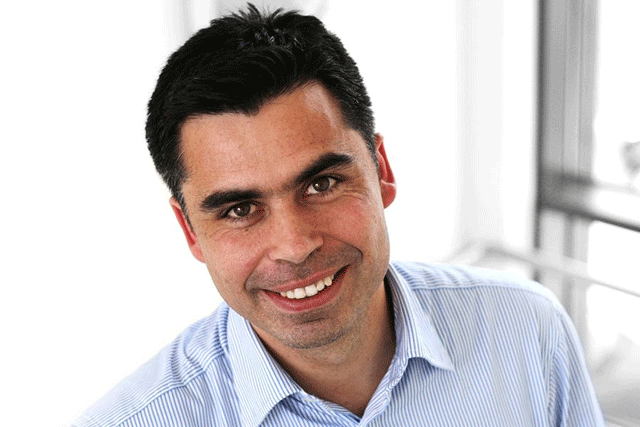It's the first thing they see in the morning and the last thing they see at night. It's where they go for advice support, directions, entertainment and conversation. Increasingly, it's also their shopping aid. For many consumers, their smartphone is their significant other. It is no surprise, then, that mcommerce is the number-one priority for many brands this year. EBay predicts that its global mobile sales will surpass $8bn in 2012.
With this in mind, Marketing spoke to Olivier Ropars, eBay's senior director for EU mobile, about how brands can get to grips with the third wave of shopping technology.
The hype surrounding mcommerce has gone on for years. What is the real opportunity for brands?
More than 40% of retailers have a mobile presence, but two-thirds of consumers are already shopping via their smartphones. If your page doesn't load in between two and three seconds, they wont bother waiting. It's a phenomenal missed opportunity.
While smart marketers realise that mcommerce is the future, many don't know where to start. What advice would you give them?
You don't have to immediately replicate your entire website on a smartphone. Instead, you should do what I call 'feature triage'. You have to be smart and focus on the key components and what translates best to a phone. If you try to meet everyone's needs and do everything at once, it could be incredibly expensive. Start small with mobile web and learn from that.
 How is mobile changing shoppers' behaviour? Are there different impulse-purchase opportunities of which brands should be aware?
How is mobile changing shoppers' behaviour? Are there different impulse-purchase opportunities of which brands should be aware?
Half of UK consumers have a smartphone, which they look at (on average) 40 times a day. That is 40 different shopping opportunities. There are new shopping mindsets, such as 'mission shopping'. For example, when my laptop broke, I replaced it via my smartphone. Consumers take photos or scan barcodes and purchase immediately. When consumers shop via their mobiles, they are more likely to buy something for themselves, so it's a different type of impulse purchase.
What are the biggest pitfalls facing brands launching into mcommerce?
The biggest mistake you can make is to see mobile as an extension of the PC. Almost 50% of people with smartphones will check prices in store. When something isn't available on the rail, the smartphone is a more efficient way of shopping. The phone is giving a lot of power to the consumer.
As many consumers see mobile as an extension of themselves, do brands need to tread carefully when trying to reach consumers via their phones?
The mobile phone is personal, but behaviour is changing. A year ago, 70% of consumers said 'no' to location data, whereas now 70% say 'yes', as they see the value of context. Consumers are much more open, but brands need to remember they can turn you off at any point. This is why it is key to make it clear to consumers what you are doing.
Are consumers comfortable using their mobiles to make big purchases, or is security still an issue?
We have done a lot of research about security concerns, and consumers still worry about issues such as wi-fi dropping off mid-purchase. However, these security concerns are falling, and it is no longer a mainstream issue. Simplifying the checkout process is key and PayPal is a huge asset. Ensuring you have a mobile express checkout is vital.
What is the most important marketing lesson you have learned?
The customer always wins in the end. If you try to hold on to the traditional model of advertising, you will fail. Mobile is here to stay and brands must get it right. Too many companies are developing apps in isolation without the budget to maintain them, which does more harm than good.
What advice would you give to marketers starting out today?
As a newcomer, you are likely to be the best in your team and one of the few who really understands the technology. Be confident in yourself and spend 33% of your time listening to consumers, 33% networking with other departments and 33% concentrating on your core expertise. In the omni-channel environment, no marketer is going to succeed in a silo.
CV: OLIVIER ROPARS
Ropars is responsible for leading the European effort to achieve eBay's aim of driving mobile sales beyond $8bn this year. Before joining eBay, he spent 15 years in the telecom and media industries, working for brands such as Motorola and McKinsey. Ropars also sat on the board of a Phones4U group subsidiary focusing on product and corporate development. He holds an MBA from the Kellogg School of Management, in Illinois, as well as an MSc in software engineering.
In his spare time, Ropars enjoys running marathons with friends.



